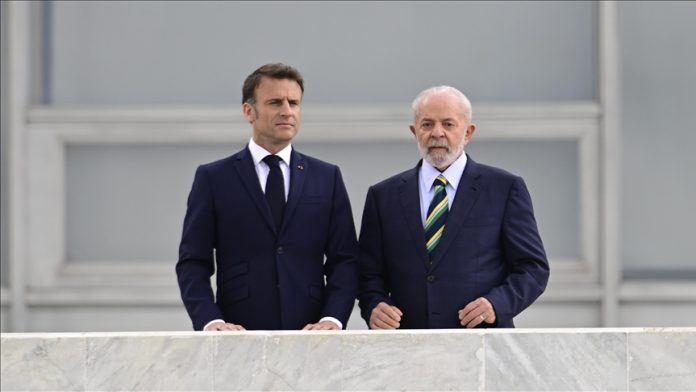Brazilian President Luiz Inácio Lula da Silva and French President Emmanuel Macron held a telephone conversation on Wednesday to discuss key trade issues, according to a statement from the Brazilian government.
Discussions between the Brazilian and French presidents touched on two key and interrelated issues: new US tariffs on steel and aluminium imports and the stalled trade agreement between the EU and Mercosur.
The US administration announced plans to triple tariffs on steel and aluminium imports for some countries, which will also affect Brazil, a major exporter of these goods. The new rates could reach 25% for steel and 10% for aluminium.
Lula has openly criticised these measures, calling them an “unfriendly step” and a protectionist measure that will harm Brazilian industry. Brazil considers these tariffs a violation of international trade rules and may challenge them at the World Trade Organisation (WTO).
Lula has called on the US administration to reconsider this decision and find a solution through negotiations.
Macron and the EU’s position
Both leaders see this US move as a threat to the multilateral trading system based on rules rather than power. They are in favour of strengthening institutions such as the WTO.
Macron and the European Union as a whole are also critical of the US protectionist measures. Although there may not be a direct blow to the EU in this particular announcement, it is part of a worrying trend.
The statement said that both presidents agreed to speed up the conclusion of the Mercosur-EU trade agreement, which has been ongoing for several years.
The dialogue between Lula and Macron demonstrates an attempt to revive transatlantic (EU-Mercosur) co-operation in the face of growing protectionism and global instability. While their positions on US tariffs are virtually identical, the Mercosur-EU agreement still requires them to strike a delicate balance between Europe’s environmental ambitions and South America’s economic interests. Progress on one issue could create positive momentum for the other.
